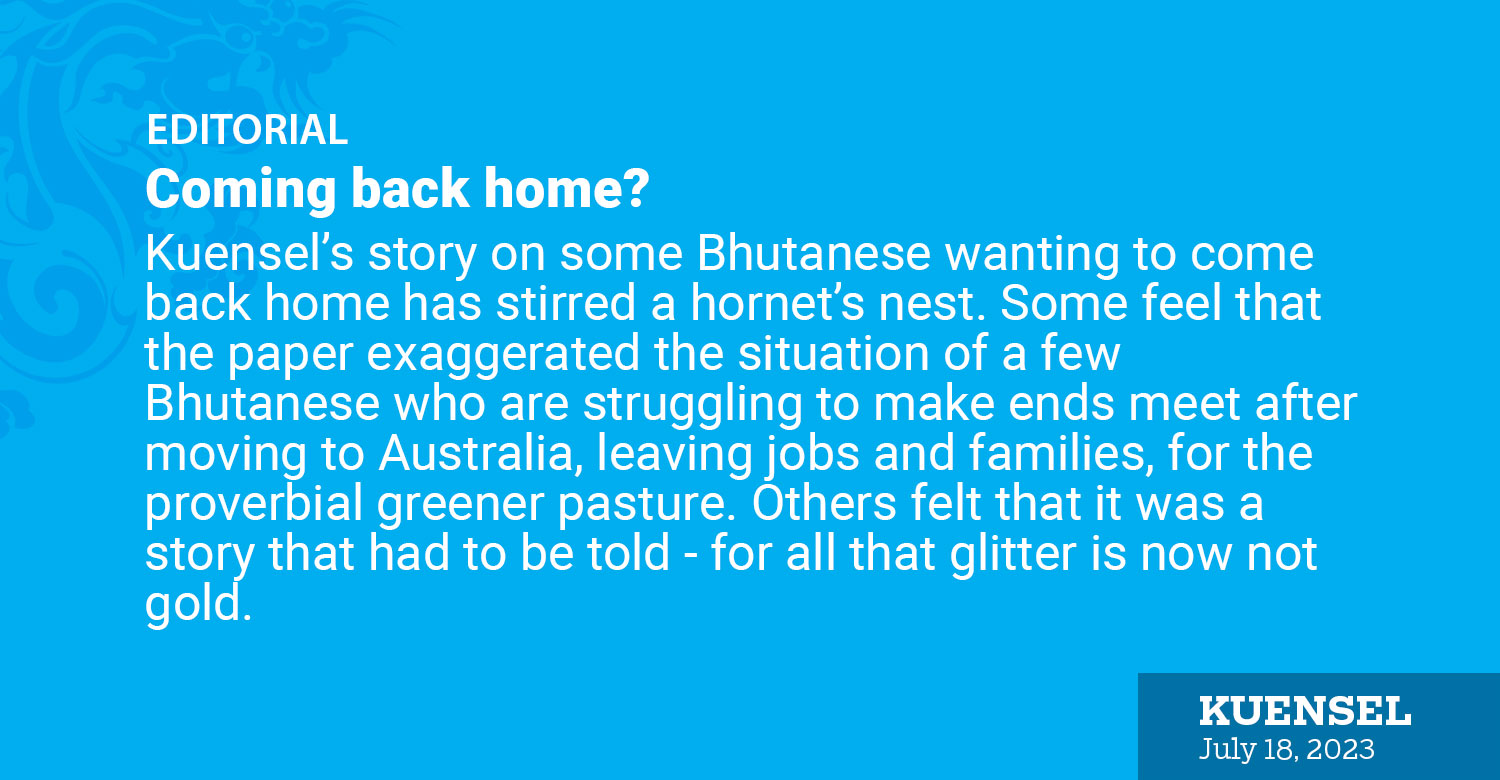Kuensel’s story on some Bhutanese wanting to come back home has stirred a hornet’s nest. Some feel that the paper exaggerated the situation of a few Bhutanese who are struggling to make ends meet after moving to Australia, leaving jobs and families, for the proverbial greener pasture. Others felt that it was a story that had to be told – for all that glitter is now not gold.
Somehow, Australia has become a sensitive issue. Stories of Bhutanese doing well in the southern country and helping folks at home is seen as the media encouraging more to leave the country. Stories of struggles in a foreign land are seen as media not being attentive or selective. Education placement firms are worried about a negative story affecting their business – of sending more to Australia.
The truth has to be told. There are success stories of how unemployed or lowly paid Bhutanese changed the lives of the family and relatives back home (Kuensel covered several success stories). With more and more joining the exodus, there is a growing number of Bhutanese shocked by what was promised or believed.
That some are wanting to come back home is not an exaggeration. Some are already back and a few rejoined the jobs they left to pursue their “dreams.” The truth is that any odd job in Australia pays way better than an executive job in the country. Those who can endure getting up as early as 3am and work for a few hours before they rush to the university, will have no problem. But, some are feeling that money is not everything.
Following Kuensel’s article, some are calling to find out if the government is willing to take them back. The government has already accepted a few. And it will take in more, especially Bhutanese who left critical fields like health and education. There is a huge shortage of trained health workers, teachers and many in other fields.
Recognising this, the government welcomes those wanting to come back and serve the country. The Prime Minister at a meeting with media over the weekend, said that the government in consultation with the Royal Civil Service Commission will look for a way to take in Bhutanese wanting to come back.
Given the shortage of skilled people, the government had employed many who retired or superannuated on contract basis. For instance, the health ministry has retained about six or seven specialists who retired but are on contract for two years, with an extension of two more years, by offering special packages. Those coming back after completing their Master’s Degree would be an added advantage. If the government can take back those wanting to come back half way through their studies, it would be a win-win situation.
The government will soon announce a decision with details. The doors are still open for those wanting to leave the country or those longing to come back. This is by far the best decision since the exodus started. Not all Bhutanese will become permanent residents. Those coming back with exposure and higher academic qualification would contribute to the development of the country.


